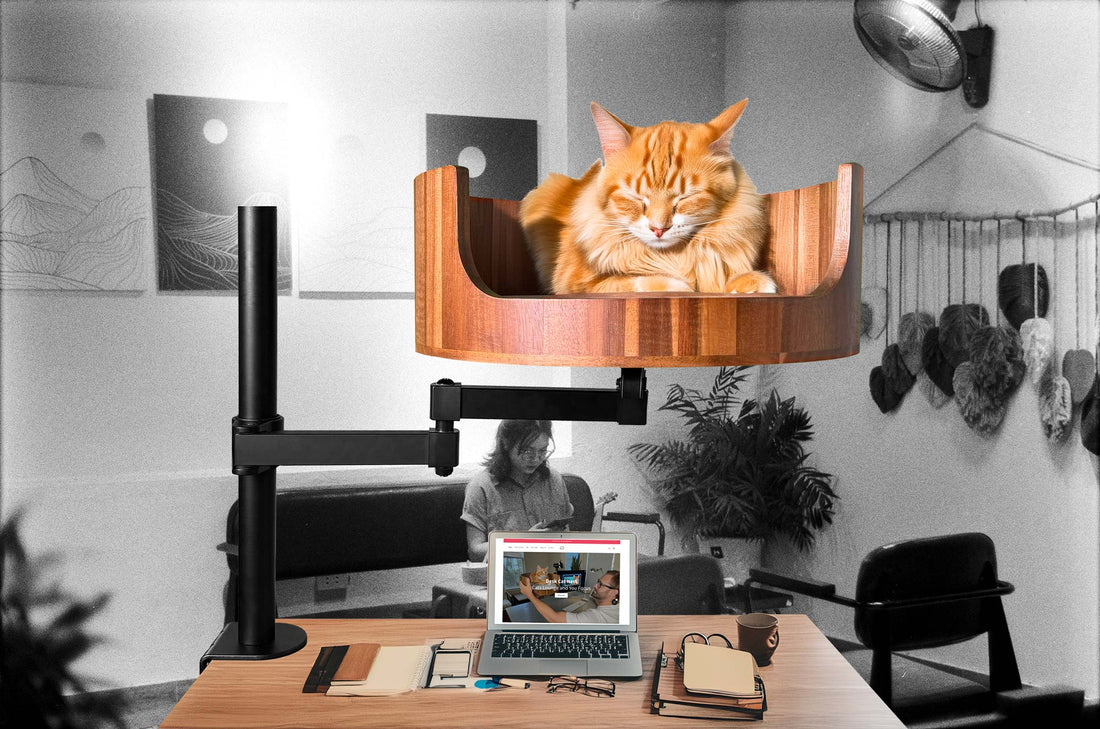
Why Does My Cat Bite My Other Cat's Neck?
Share
Have you ever witnessed your cats engaging in what appears to be aggressive behavior, with one cat biting the neck of the other? This peculiar phenomenon can be alarming for cat owners, but it is actually a common behavior observed in feline social interactions. Understanding why cats engage in this behavior and the reasons behind it can provide valuable insights into their complex social dynamics.
In this article, we will explore the reasons why cats may bite each other's necks, shedding light on this seemingly aggressive behavior. From establishing dominance within the cat hierarchy to engaging in play or grooming rituals, there are various motivations behind this behavior that can help us decipher the underlying communication between our feline companions. By delving into the intricacies of feline behavior and communication, we can better understand and interpret our cats' interactions, fostering a harmonious and enriching environment for our beloved pets.
1. Cats often bite each other's neck during play or grooming to assert dominance or establish boundaries.
2. This behavior is a natural part of feline social hierarchy and communication.
3. Cats may also bite each other's neck as a sign of affection or to show submission.
4. Understanding your cats' body language and behavior cues can help prevent serious conflicts.
5. Providing multiple resources and spaces for each cat can help reduce tension and prevent aggressive behavior.
## Dominance and Territory
Cats biting each other's necks can be a display of dominance and territorial behavior. Cats have a natural instinct to establish hierarchy within their group or territory. By biting the neck of another cat, they are asserting their dominance and establishing boundaries. This behavior can be more common in multi-cat households where cats are constantly vying for the top position in the social order.
## Playful Behavior
In some cases, cats biting each other's necks can be a form of playful behavior. Cats, especially kittens, use biting and wrestling as a way to play and interact with each other. It mimics the hunting and fighting behavior they would exhibit in the wild and helps them develop important social skills. However, it is important to monitor this behavior to ensure it does not escalate into aggression.
## Grooming and Affection
Another reason why a cat may bite another cat's neck is as part of grooming and affection. Cats groom each other to strengthen their social bonds and show love and affection towards each other. Biting the neck is a common grooming behavior where one cat will gently grab the scruff of another cat's neck to hold them in place while grooming. It is a sign of trust and camaraderie between the cats.
## Medical Issues
Sometimes, cats may bite each other's necks due to underlying medical issues. Pain, discomfort, or illness can cause a cat to act out aggressively towards another cat, including biting. It is essential to keep an eye on any changes in behavior and consult with a veterinarian to rule out any medical issues causing the behavior.
## How to Manage Biting Behavior
If you are concerned about your cats biting each other's necks, there are several strategies you can use to manage the behavior. Providing an enriching environment with plenty of toys, scratching posts, and perches can help reduce tension and redirect their energy. Additionally, spaying or neutering your cats can help minimize aggressive behavior related to mating instincts. Consulting with a professional behaviorist can also provide insight into the underlying reasons for the biting behavior and offer tailored solutions for your specific situation.
Frequently Asked Questions
Why does my cat bite my other cat's neck?
There are a few reasons why cats may bite each other's necks. It could be a form of play, establishment of dominance, mating behavior, or even as a way of showing affection. It is important to monitor their interactions and body language to better understand the reason behind the behavior.
Is it normal for cats to bite each other's necks?
Yes, it is normal for cats to bite each other's necks as a form of communication or interaction. However, if the biting becomes overly aggressive or leads to injuries, it may be a cause for concern and should be addressed.
How can I prevent my cat from biting my other cat's neck?
One way to prevent excessive biting between cats is to provide them with plenty of mental and physical stimulation, such as interactive toys, scratching posts, and vertical spaces to climb. Additionally, ensuring they have their own space and resources can help reduce the likelihood of conflict.
Should I intervene if I see my cat biting my other cat's neck?
It is important to monitor your cats' interactions and intervene if the biting becomes too aggressive or leads to distress for either cat. Redirect their behavior with toys or treats, and separate them if necessary to prevent any injuries.
In conclusion, providing your cats with a Desk Cat Bed can help alleviate the issue of one cat biting another's neck. The elevated and enclosed design of the bed offers a safe and comfortable space for each cat to retreat to when feeling threatened or overwhelmed, reducing the likelihood of aggressive behavior. Additionally, the soft and plush material of the bed provides a cozy and inviting environment for your cats to relax and bond peacefully. Investing in a Desk Cat Bed is a valuable choice that can promote harmony and well-being among your feline companions.



















































